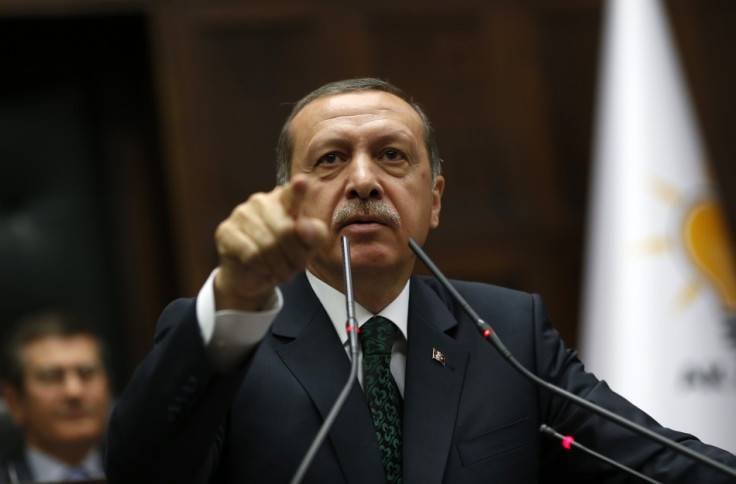Turkey Graft Probe: Is This the Beginning of the End for Premier Erdogan? [BLOG]

Since 17 December, a political tsunami has shattered Turkey's Pandora's box into pieces, with seemingly little or no chance of repair. The sons of three ministers, an Azeri businessman, the CEO of a national bank, a mayor and a prominent housing contractor are the main actors involved in Ankara's largest bribery investigation since the 1990s.
The scandal, allegedly involving tens of millions of dollars of irregular money transactions, has shaken the government only a few months after the Gezi Park protests and just three months away the next crucial local elections. While the ruling AKP or Justice and Development Party - whose acronym in Turkish means "white" and "pure" - struggles to handle its second serious challenge within a year, the mark on its reputation will hardly be removed.
Invisible hands
Tension escalates by the day, with new developments every hour and both the domestic and international dimensions of the scandal becoming increasingly blurred.
The speeches of prime minister Recep Tayyip Erdogan made reference to "a bunch of dirty hands" and "dark powers" silently expanding their branches through the police, the judiciary and the media.
The government's most immediate reaction has been a overhaul of the police forces, with nearly 70 senior officers fired or moved from their posts in Istanbul, Ankara and various cities' departments all over the country. Then, the warning to the judiciary and the media : "You'd better clean your circles. You are not clean too. You are trying to tear this country apart, but I am warning: you are the ones that are going to lose".
Despite Erdogan's allegations, the invisible hand behind the "dirty operation" is linked to Fethullah Gulen, a charismatic US-based preacher, former ally of the Prime Minister and today among his most dangerous foes. To many observers, the investigation is part of a deeper struggle within the state, carefully directed by the members of the Gulen Community, an alleged "shadow force" operating through networks within the police and the judiciary.
A demonstration of Gulen's involvement in the scandal is seen by many in the figure of Zekeriya Oz, the prosecutor who conducted the investigations in strict secrecy for three years and has always been considered sympathetic to the Gulen Movement.
"The AKP should see this as a friendly warning", a prominent Gulemnist daily columnist wrote in a tweet which was later erased. "Perhaps the last one".
A corrosive war within the state might be on the way but Gulen could not be the only driving force behind the opposition to the government. "There are gangs within the state" claimed Prime Minister Erdogan, referring to a heterogeneous coalition of forces opposing his rule. While the investigation is ongoing, only time will probably shed light on the existence and real nature of these forces.
The beginning of the end?
Anti-government demonstrations have erupted in various cities of Turkey, demanding the resignations of the ministers involved in the probe.
In the meantime, the headlines of Turkish newspapers ask the public: "How could he not know?".
While men close to the Prime Minister are deeply involved in the scandal, rumors suggest that the investigations could rise even higher in the government's circles.
Erdogan seems to be caught unprepared and the new scandal presents a thorn in the side for him and his party in the coming local and presidential elections. He might be considering a large-scale cabinet reshuffle - but could it be sufficient to save the party's image? Could we be witnessing to the beginning of a slow end to the AKP's political fortunes?
While the government has been able to effectively repress the forces unleashed by the Gezi Park demonstrations, it might not be able to cope with a simmering bubble of dissent coming from inner and more powerful forces.
Emanuela Pergolizzi writes about Turkish affairs. She has published an essay entitled "AKP foreign policy: a 'neo' or 'post' Ottoman recap?". From 2013 she covered the peace process between the Turkish government and Kurdish jailed leader Abdullah Ocalan. She writes for AffarInternazionali and other web magazines.
© Copyright IBTimes 2025. All rights reserved.





















